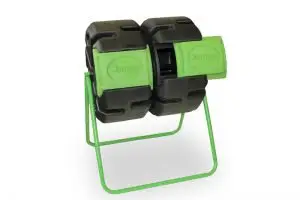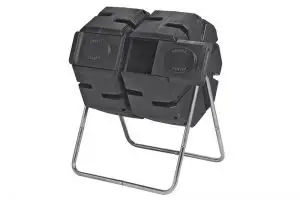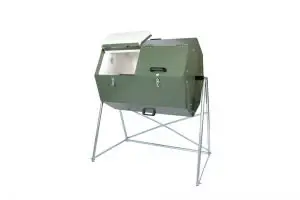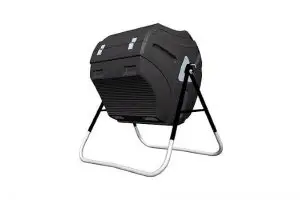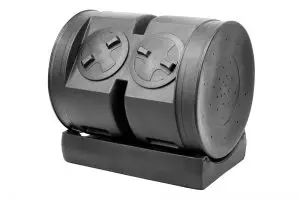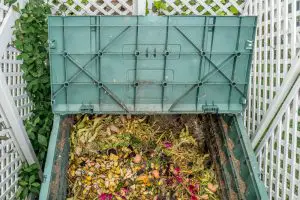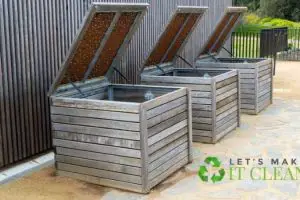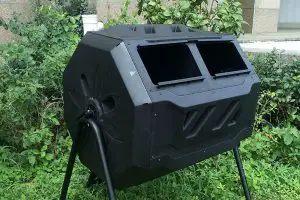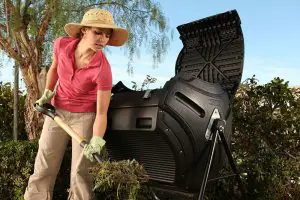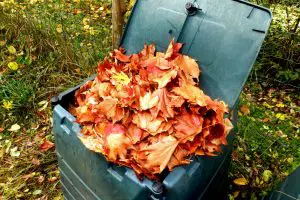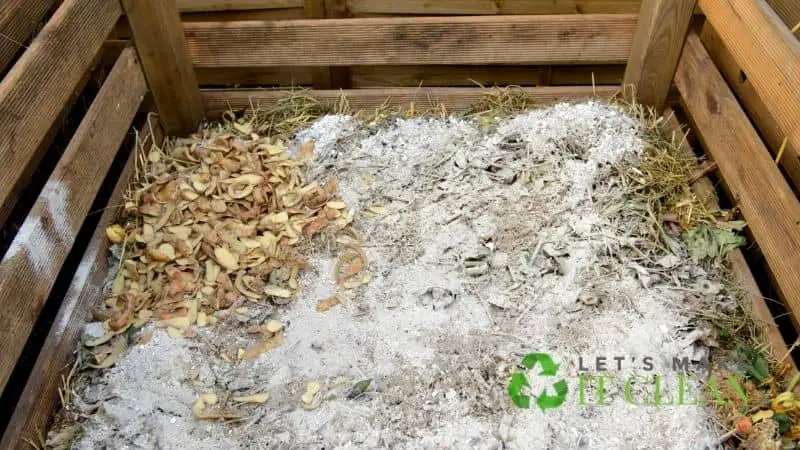A compost pile can catch fire in certain conditions. When spontaneous combustion occurs in the composting heap, the temperatures rise resulting in the pile catching fire.
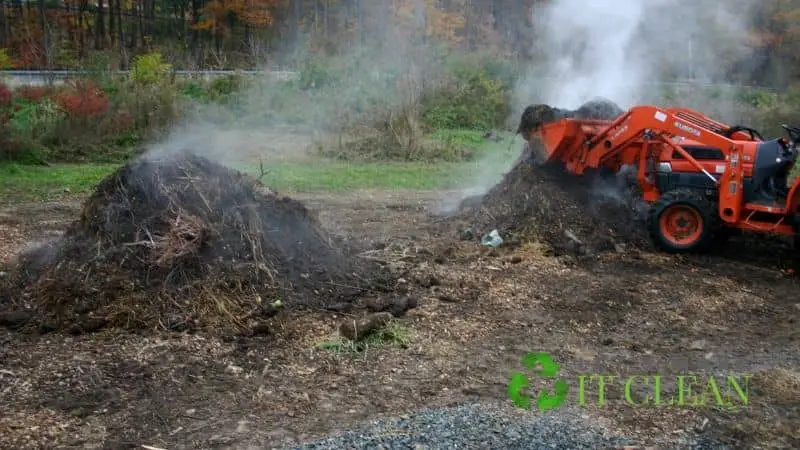
This behavior is likely to occur in a huge commercial compost pile rather than a small home or kitchen compost. Keep your compost piles small and monitor the moisture levels to prevent a fire in your compost.
Quick Navigation
Companies that produce large amounts of organic waste often compost it for sale. These compost piles sometimes catch fire which if not controlled, would result in devastating losses.
Homeowners tend to wonder if their composters could spontaneously combust, leading to a fire catastrophe. This article answers all questions relating to compost piles catching fire.
How Do I Keep My Compost From Catching on Fire?
To make sure your compost piles don’t spontaneously combust, be sure to practice the following techniques.
Maintain a Small Compost Pile
A small pile is easy to maintain. The airflow in these manageable compost piles is better since you have enough room for the mix of materials.
It would be best if your longest pile is less than twelve feet. You can also cool the organic materials in your compost bin with ease if it’s small.
Monitor the Compost’s Moisture Level
When your composting pile doesn’t have sufficient moisture, it begins to produce a burning smell. This smell is an indicator that you should check the moisture level and add water if need be.
Monitor the Compost Bin’s Internal Temperature
If you notice smoke escaping from your well-insulated composter, the temperatures have risen to dangerous degrees Fahrenheit.
You, therefore, must reduce the heat retained in your composter by having a good aeration system.
Sign Up for Emergency Fire Response
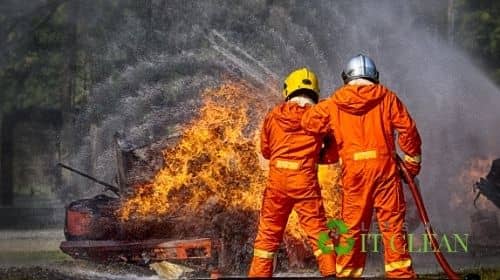
Make arrangements with the fire department to have your composting area surveyed. Ask for all your employees to go through procedures that will help deal with emergency fires. sign up for firefighting classes.
Firefighting activities that include controlling the amount of oxygen reaching the frames result in water and nutrient runoffs.
Ensure there are protocols to be followed when handling such situations.
What Causes Compost Fires?
An unusual combination of biological activity in the composter can result in a compost fire. These three conditions must have occurred before the pile catches fire.
- First is having dry composting material that is left unattended. These organic materials get non-uniform pockets of debris.
- Secondly, having a huge compost pile that is well insulated without sufficient airflow.
- Third, inadequate moisture distribution in your heap.
It is vital to note that composting operations geared towards commercial ventures are most likely to catch compost fires. This is mainly because the piles are large.
When left unattended or are mismanaged, the piles will cause uncalled-for losses. You should therefore ensure you regularly monitor the temperatures and moisture levels of the bins.
Can You Put Ashes in Your Compost Bin?
Yes. Since ashes do not contain nitrogen and will not burn plants, they can be useful in the garden, especially in the compost pile.
Wood ash compost can be a valuable source of lime, potassium, and other trace elements.
Can Compost Get Too Hot?
Yes! Compost can get too hot if the moisture levels are not well maintained. Also, if the air circulation is poor, your compost will overheat.
When the compost is too hot, it may kill organisms that are crucial in a nutrient generation process.
You don’t have to worry about a fire if the compost is overheated if you have sufficient water in a pile. However, the excess heat will compromise some lawn clippings, grass clippings, and plant matter as part of the bin’s content.
Extreme temperatures in composting may result in spontaneous combustion. These fire cases are not common even in the case of overheated piles.
If you have sufficient moisture in a pile, it doesn’t matter how hot it gets; it is still safe for composting.
How to Tell if Your Compost Is Too Hot
When your pile’s moisture and oxygen levels are low, it means the pile is too hot. Heat and the sun’s light are vital in composting operations. This is because heat is crucial in facilitating a faster-composting process.
You might like: Where To Place Your Compost Bin (Tumbler)
The important part is getting away from regulating the temperature in your compost bins by having sufficient airflow. If the degrees Fahrenheit rise dangerously, introduce oxygen and water fast to avoid compromising the composting content.
Balance the amount of carbon material and nitrogen material in your pile. You can do these by adding equal amounts of green material and brown material.
What Can I Do to Prevent My Compost Piles From Overheating?
There are a few steps to take to ensure your compost pile doesn’t overheat. An extreme temperature may kill the living organism in the compost organic matter, and that’s why it should be avoided at all times. In extreme cases, the compost pile can overheat and end up starting fires.
The compost pile should maintain a certain temperature to ensure the microorganisms responsible for the whole decomposing process work efficiently and complete the whole process on time.
Below are ways to prevent your compost pile from catching fires.
Don’t Put an Excess Pile
The expected compost pile should be at least three feet by three feet by three feet which is a cube of the pile. The pile should be below 12feet at all times.
Add manageable amounts of organic matter such as wood chips, hay, food scraps, and plant matter that will allow limited airflow.
Keep Checking the Pile
The only way you will know the progress of the pile is to keep checking the progress at all times. If you realize some smell coming from the pile, it is burning, or it is extremely hot.
Keep Turning the Compost Pile
Use a compost thermometer, and every time you note the compost is cooling down, turn it. If your compost bin doesn’t have turning equipment and the compost is not a lot, turn by removing the compost pile and returning it.
Add Some Water to the Compost Pile
One condition that causes a fire on your compost pile is dryness. To avoid that, add water to the pile. Apart from that, the microorganism responsible for the whole composting process requires a moist condition.
Ensure the Amount of Green and Brown Material Is the Right One
It is recommended to put the brown material carbon to green which is nitrogen in the ratio of 30 to 1.
You don’t have to measure the two practically but always ensure the brown material is more than the green material.
Conclusion
A compost pile needs attention. You need to check it regularly to ensure the moisture in it is okay and to turn it. When you neglect it for a while, you may find it has overheated.
If you are in an area with a high temperature, you should check the compost pile more frequently as the chances of overheating are higher.

